-
•
•
4 responses
What did Joseph Smith think? What was he like as a person? Questions like these are interesting to think about and are important considerations when you’re a part of a religion that draws so heavily on one person’s writings and ministry for its foundation. In a recent interview with Kurt Manwaring, R. Eric Smith, Matthew C. Godfrey, and Matthew J. Grow discussed some of their insights into Joseph Smith’s mind and life gained through both their work with the Joseph Smith Papers Project and in editing the recently-published Know Brother Joseph: New Perspectives on Joseph Smith’s Life and Character (Deseret Book,… Read More
-
•
•
One response
If I were writing about the benefits of lay clergy in a missionary tract, I would probably spend less time on dusting one’s feet. Read More
-
•
•
6 responses
The revelations we are studying this week continue with themes found in revelations from throughout 1830, such as an imminent Second Coming and the gathering, but also set up an expectation for an endowment of power that would be an important theme for much of the remainder of Joseph Smith’s ministry. After the conversion of a significant number of people in Kirtland and the subsequent arrival of Sidney Rigdon and Edward Partridge in New York to meet Joseph Smith in December 1830, a set of revelations were recorded that indicated that the headquarters of the Church should shift to Ohio… Read More
-
•
•
Poems about the Gathering, preparation in order to ally our fears, and the cares of the world, to accompany the Come Follow Me lesson for April 12 to 18. Read More
-
•
•
6 responses
The teachings are familiar, but the images are surprising. Read More
-
•
•
4 responses
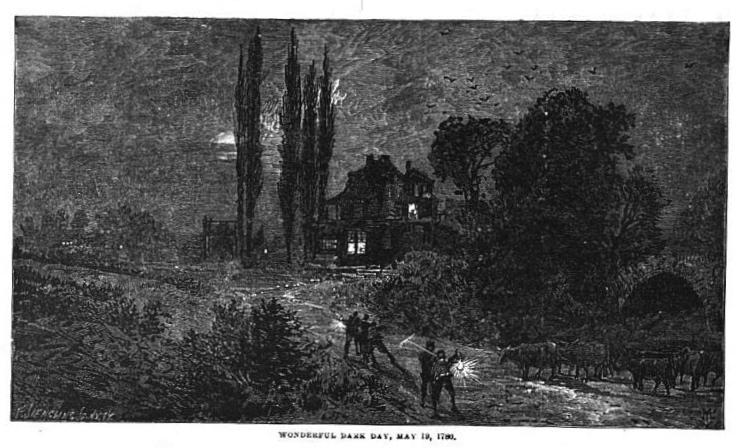
For several days odd signs had been showing—the sky was yellow and the sun was red. Suddenly, the sky darkened further. Animals ran for cover. When seen, the moon was red and soot was seen to be floating in the river. By noon it was dark, forcing people to light candles and wonder—was the great and terrible day of the Lord’s return at hand? With all the signs at hand, it was proposed that the Connecticut legislature be adjourned in case the Second Coming of Jesus Christ was going to occur. One of their members, Abraham Davenport, opposed the move,… Read More
-
•
•
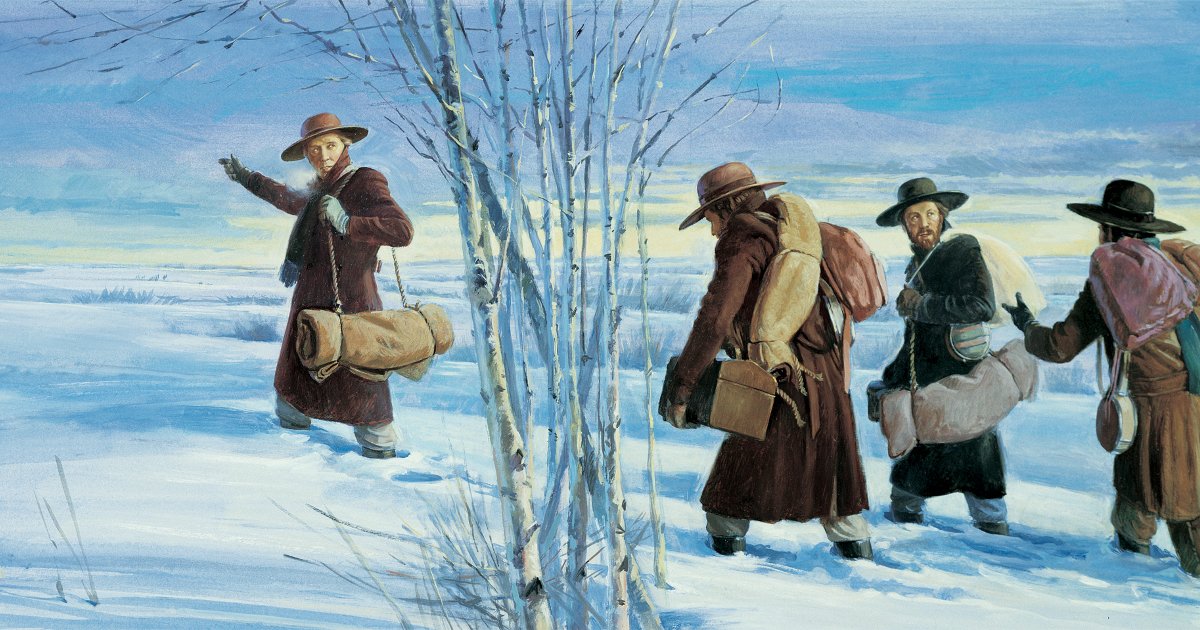
The seven sections of the Doctrine and Covenants covered by this week’s Come Follow Me lesson discuss, in general, missionary work and the subsequent benefits of membership in the Kingdom. The first five of these sections include missionary calls to David Whitmer, Peter Whitmer Jr., John Whitmer, Thomas B. Marsh, Parley P. Pratt and Ziba Petersen and advice on how to preach is given to Ezra Thayre, Northrop Sweet and Orson Pratt. The final two sections are Sidney Rigdon’s call to act as scribe for Joseph Smith in translating the Bible, and a blessing given to Edward Partridge. L.… Read More
-
•
•
While no Come Follow Me lesson will be taught at church this coming Sunday, there is a lesson in the manual, meant for home study. So, I’m providing some poems to go with that lesson, which focuses on three aspects of the mission of Jesus Christ: that he was resurrected (i.e., He Lives), that because of him we will all be resurrected, and His atonement. Of course, these are not strange concepts in our poetry; they appear many times in our hymnal alone. So I’m presenting a few poems that are less familiar. Read More
-
•
•
2 responses
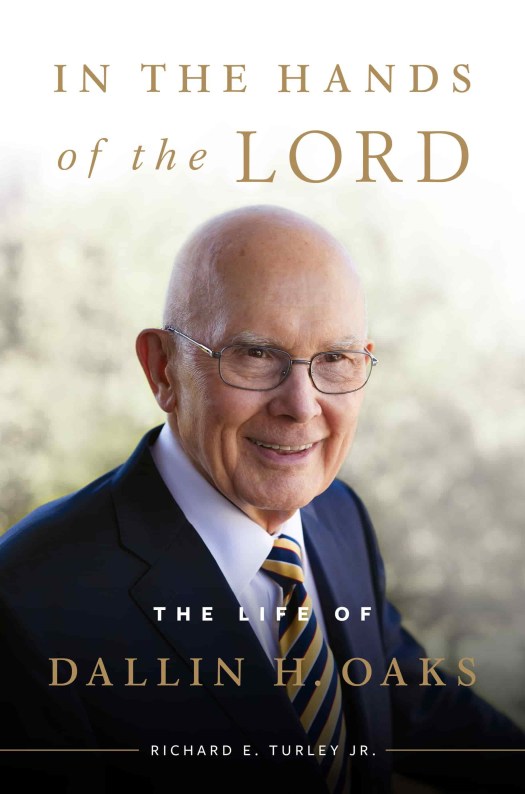
Recently, President Dallin H. Oaks’s biographer, Richard E. Turley, Jr. sat down with Kurt Manwaring to discuss the recently-published book In the Hands of the Lord: The Life of Dallin H. Oaks. What follows here is a co-post to the one at Kurt Manwaring’s site, with quotes from and discussion about the full interview, which can be read here. As part of the discussion, Richard Turley discussed some of the documents he had available to him to draw upon in writing about President Oaks. He stated that: He is one of the most documented Church leaders in history. I used… Read More
-
•
•
8 responses
This short sections feels quite familiar. Read More
-
•
•
4 responses
I lived a significant portion of my life in Logan, Utah and frequently attended the temple during the time that I lived there. I had a lot of beautiful and sacred experiences while doing so, but I also rarely attended that temple without experiencing some feelings of loss. In the late 1970s, in order to introduce the use of filmed endowments to that temple, the building was gutted and almost all of the paintings, stained glass, chandeliers, furniture, and other furnishings were stowed away in archives in Salt Lake City or Provo, sent to other temple and Church office buildings… Read More
-
•
•
29 responses
Hezekiah didn’t consult with artists or historians before destroying the bronze snake Moses had made. He didn’t even try to preserve it somewhere else for its cultural value. Read More
-
•
•
5 responses
On the confession of sin and the treatment of members acting contrary to law Read More
-
•
•
26 responses
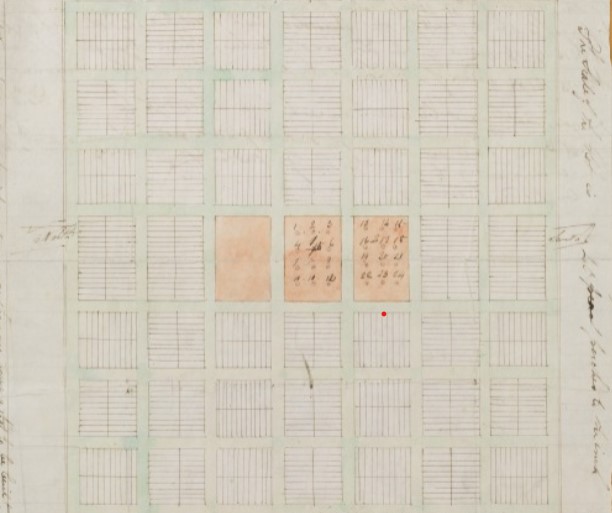
Change and continuity create an interesting tension in the Church. I explored this in a previous post as the tension of believing in an everlasting, unchanging gospel that we have had restored to us and the belief in ongoing revelation and changes to adapt and evolve the Church to our current circumstances. Changes can be disconcerting with the first of those two beliefs in mind because it demonstrates that the Church’s beliefs and practices are not unchanging and static. One of the ways we minimize the perception of change, however, is to continue to use terminology that was important—words and… Read More
-
•
•
2 responses
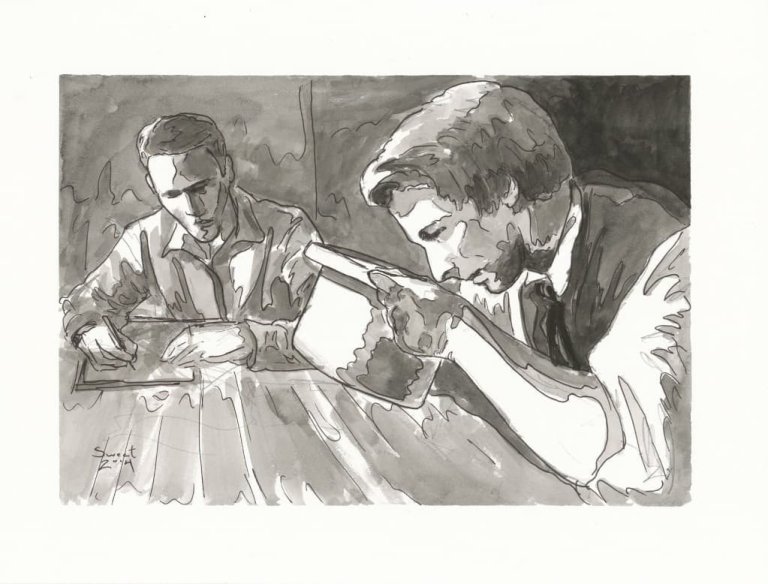
Some years ago, an institute teacher in a Church history class I attended said with some levity that: “I bear my testimony that Church media is not true.” He said this hyperbolic statement in the context of a class where we talked about Joseph Smith translating the Book of Mormon, and he went on to discuss how there seem to be many different approaches that Smith took during over the course of the translation process. The class took place around the time that the Gospel Topics Essay on the translation of the Book of Mormon had been published, in which… Read More
-
•
•

Two poems to enhance study of the Come Follow Me lesson for D&C 29, which covers both the Gathering and the Plan of Salvation. The poems are Eugene A. Rooch’s Come, Gather to Zion and Joseph L. Townsend’s Among the Ancient Indian Mounds Read More
-
•
•
25 responses
There are certain things that you grow up with that you don’t realize are weird until you start really noticing the world around you and see that other families don’t do those things your family does. Take one of my friends, for instance, who didn’t realize until well into his twenties that most kids don’t necessarily grow up playing poker and drinking Baileys with their grandparents and their grandparents friends, or another who didn’t realize until adulthood that it wasn’t normal for children to get stiches every few months because of frequent climbing accidents around her house, yard, and neighborhood.… Read More
-
•
•
4 responses
For Hyde, the sacrament seems to be not quite as strictly symbolical as it is for us, and more directly tied to guilt and confession. Also, will Sunday always be the Sabbath? Read More
-
•
•
9 responses
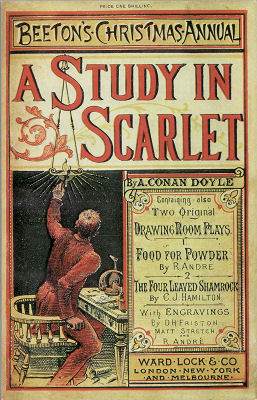
The recent controversy over the decision of the literary estate of Theodore Seuss Geisel to stop selling six of his Dr. Seuss books because of their bigoted depictions of minorities reminded me of a somewhat similar situation. Nearly 10 years ago, I wrote the post Responding to Bigoted but Famous Texts about a Virginia school district and a controversy over a book featuring the beloved literary character Sherlock Holmes. The book was the first Holmes story, A Study in Scarlet, and the villains of the story were, of course, Mormons. Like some news stories over the Dr. Seuss books, the few… Read More
-
•
•
6 responses
Several years ago, I had a conversation with co-worker from outside of Utah about various Mormon churches that existed in Utah. He had been doing some research and we were discussing fundamentalist Latter-day Saint groups (ones like the FLDS or the Apostolic United Brethren that promote polygamy and other doctrines from the early Utah era) when he made the remark that those groups had stayed more true to early Mormonism. I paused for a moment, then explained that it depended on how you looked at it. They had stayed true to specific beliefs and practices from the Church from that… Read More
-
•
•
One response
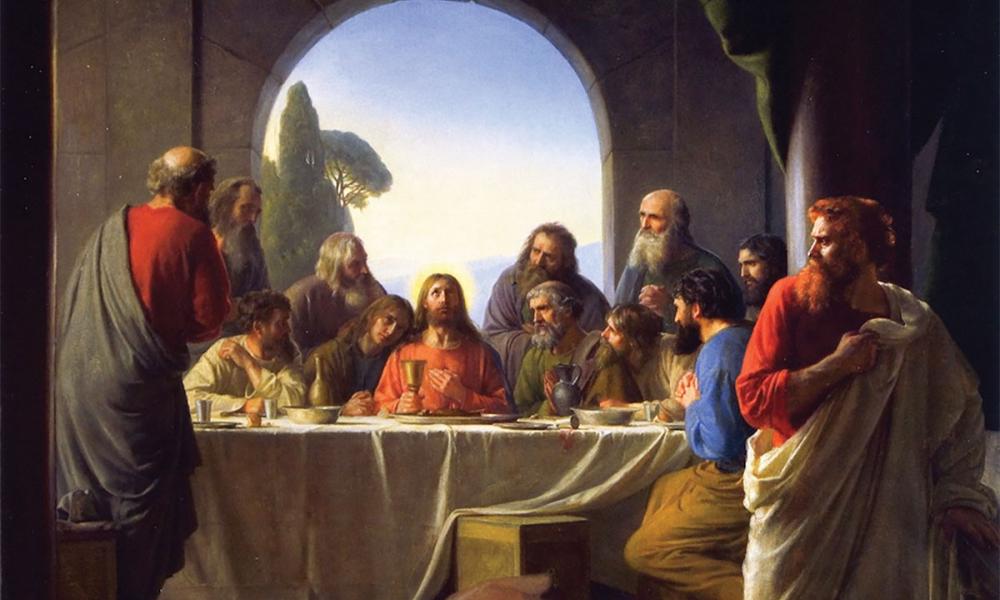
A function of revelation is clarifying confusion and what isn’t clear. And this function is displayed in the two sections of the Doctrine and Covenant’s covered in this coming week’s Come Follow Me lesson. In Section 27, we learn that it isn’t necessary to use wine in the sacrament (and, in fact, “it mattereth not what ye shall eat or what ye shall drink”), and in Section 28, we are told that who receives revelation matters—that revelation binding on the whole church comes to the Prophet, whose revelations are supreme. As I have for each lesson so far this year… Read More
-
•
•
12 responses
Within the corpus of J. Golden Kimball folklore, there is a story of Elder Kimball getting bored during a long process of sustaining officers at a stake conference somewhere south of Provo, Utah. Noticing that most of the congregation was nodding off or had fallen asleep while mechanically raising their hands for every name read, he continued in his usual voice, stating: “It is proposed that Mount Nebo be moved into Utah Lake, all in favor manifest by the usual sign.” The majority of the people raised their hands. Then, Elder Kimball paused, looked around, and screeched in his magpie… Read More
-
•
•
4 responses
What is a priesthood ordinance’s method of action? What Hyde describes in this short article seems to be both less direct, and to emphasize the mediation of the priesthood and the priest conducting an ordinance, more than we typically would today. The gift of the Holy Ghost also seems conspicuously absent. Read More
-
•
•
One response

One often forgotten feature of the Doctrine and Covenants is the very personal nature of many of its revelations. This week’s Come Follow Me lesson includes several sections of these revelations, including the unusual compilation of revelations found in section 23, which was given serially to Oliver Cowdery, Hyrum Smith, Samuel H. Smith, Joseph Smith, Sr., and Joseph Knight, Sr. Two other sections of this group are given to Oliver Cowdery: the first along with Joseph Smith, Jr. and the second in conjunction with John Whitmer. And the final section was given to Emma Smith and is best known as… Read More
-
•
•
18 responses
If the Book of Moroni is an instruction manual to “build a church,” as Michael Austin suggests, with the “nuts-and-bolts how-to-run-a-church stuff that anybody trying to reassemble what the Nephites built will need to know,”[1] then Doctrine and Covenants Section 20 represents an effort to take that manual, adapt it and expand on it for the restored Church of Christ. Known as the Articles and Covenants, the section is something like a charter for the Church in the early 1830s, capturing how to function as a church and the basic information about the Church (with occasional updates up to the… Read More
-
•
•
2 responses
Also, Native Americans make an appearance. Read More
-
•
•
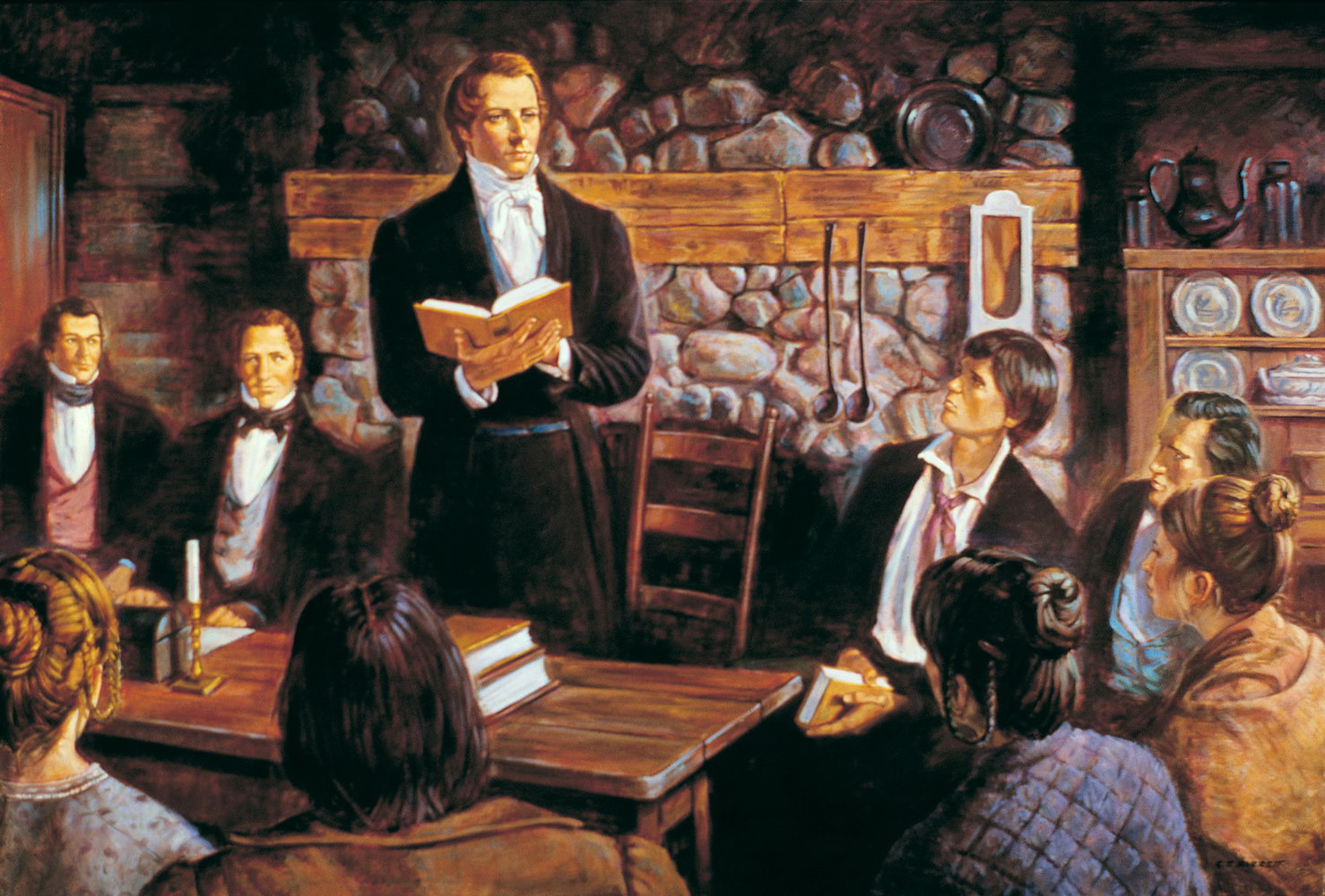
Administrative acts don’t always get the same attention that ordinances and more dramatic events. And in comparison to the First Vision, the Martyrdom and a number of other events, the organization of the Church doesn’t get as much attention. This is also true in poetry. But even so, there are poems that mention the organization of the Church. This week’s Come Follow Me lesson discusses sections 20 and 21, both of which refer directly to the organization of the Church. And the third section covered in the lesson, section 22, makes plain the need for baptism by proper authority, something… Read More
-
•
•
8 responses
Years ago, I attended a testimony meeting that began with a counselor in the bishopric talking about how grateful he was to be a part of a religion where believed that God was full of grace and would save almost every individual in one degree of glory or another. He quoted from the Vision in Section 76, and discussed how all but a very few would be saved in the Telestial, Terrestrial, or Celestial Kingdom and how grateful he was that God loved His children enough to make a plan that allows pretty much everyone into heaven in some form. … Read More
-
•
•

The sections of the D&C covered in this week’s Come Follow Me lesson are apparently about the calling of the twelve apostles and paying for the Book of Mormon. But they also include themes that don’t directly bear on these purposes. Perhaps the most important theme is the call for repentance, and the subsequent forgiveness. Both sections talk about repentance: section 18 discussing the role of missionaries and members in calling the world to repentance, and section 19 including the oft-cited imploring of the Lord to repent in verse 16: “For behold, I, God, have suffered these things for all,… Read More
-
•
•
6 responses
What were the three witnesses promised and what did they claim to experience? The basics of answering this question seems obvious—they saw the gold plates and other artifacts related to them. What is less apparent is how the Three Witnesses had that experience, since there are indications that they viewed the plates in vision, rather than experiencing them in a tangible way. There is often a desire to make their experience out as being more materialistic than it was, perhaps as a result of conflating their experience with that of the Eight Witnesses, contradictory recollections of those who knew the… Read More
